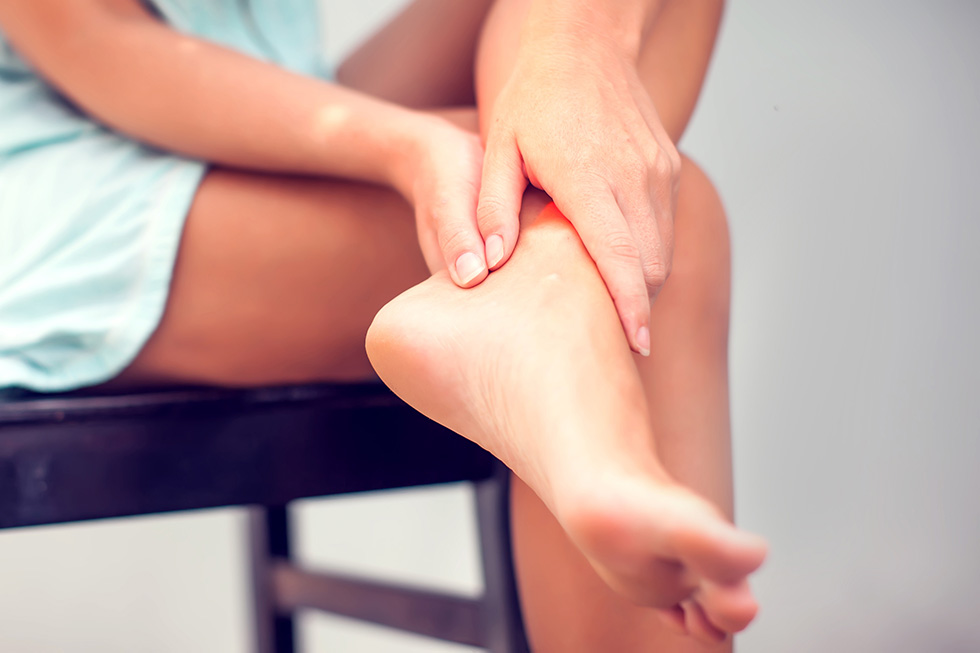Benefits of Visiting A Podiatrist for Diabetic Foot Care
Sep 15, 2023Dawn M. Michels, DPM
If you have diabetes, taking good care of your feet is the cornerstone of living well. For this reason, your healthcare team should include an experienced podiatrist. You can find the specialized expertise you need at Louisville Orthopaedic Clinic in Louisville, Kentucky. Our outstanding team of orthopedic specialists includes Dr. Dawn M. Michels, a board-certified doctor of podiatric medicine (DPM) who has completed highly focused and extensive training, making her uniquely qualified to provide diabetic foot care.
Dr. Michels offers the following explanation of how diabetes can affect your feet:
The Effects of Diabetes-Related Nerve Damage
The foundation of an effective diabetes management program is keeping your blood sugar (glucose) levels within the targeted range. In addition to preventing long-term, potentially serious complications such as heart disease, vision loss, and kidney disease, controlling your blood glucose can help prevent diabetic nerve damage (neuropathy).
High blood glucose causes chemical changes in your nerves, which can interfere with their ability to transmit signals to your brain. Due to diabetic neuropathy, you may lose some sensation in your legs and feet. This is dangerous because you may not feel pain if you have a cut or sore on your foot. An untreated foot injury can lead to a serious infection that requires immediate medical attention.
Some common warning signs of diabetic neuropathy include:
- Numbness and tingling sensations in your legs and feet
- Reduced sense of pain and temperature changes
- Shooting pains, especially at night
- Loss of coordination due to an inability to sense joint positions
- Ulcers on your legs and feet
The Effects of Diabetes-Related Circulatory Issues
Diabetes also increases your risk of peripheral artery disease (PAD), which is a narrowing or blockage of the vessels (arteries) that carry blood from your heart to your legs. This can reduce blood flow to your legs and feet.
Because PAD interferes with wound healing, a minor blister or bruise on your foot can take much longer than normal to fully heal, leaving you vulnerable to infection. Slow wound healing coupled with reduced blood circulation can increase the risk of tissue death.
The symptoms of PAD can include:
- Mild to severe leg pain
- Shiny or discolored skin on your legs
- Sores on your legs and feet
- Leg weakness and cramping
How a Podiatrist Can Help
In addition to being specially trained to treat medical conditions that affect the lower legs and feet, a podiatrist is familiar with diabetic foot complications and can often spot subtle signs of trouble and quickly address them to prevent dangerous complications. At Louisville Orthopaedic Clinic, we generally recommend that people with type 1 or type 2 diabetes have a foot assessment performed at least every six months to help ensure that any potential issues are identified early.
What Is a Diabetic Foot Assessment?
During a diabetic foot assessment, your podiatrist will typically:
- Ask about your health history and any issues with your feet.
- Check the fit of your shoes and socks.
- Assess your muscle strength and control.
- Evaluate your ability to feel touch, pressure, and temperature changes.
- Assess the blood flow to your feet and toes.
- Check your feet for skin problems such as dryness, cracking, calluses, and blisters.
- Examine your feet for sores, cuts, ulcers, and fungal infections.
Based on the results of your diabetic foot assessment, your podiatrists can determine your risk for diabetes-related foot complications and suggest an appropriate management plan. This may include:
- More frequent podiatric care
- A change in footwear
- A tailored exercise program
- A moisturizing cream
- An antifungal medication
To effectively manage your diabetes, you need the right healthcare team on your side. As your podiatrist, Dr. Michels can help you optimize the health of your feet.
If you would like to learn more, contact Louisville Orthopaedic Clinic today to schedule an appointment with Dr. Michels at our state-of-the-art facility in Louisville, KY.



 Our patients can receive MRI imaging onsite at both our Louisville and New Albany Clinics.
Our patients can receive MRI imaging onsite at both our Louisville and New Albany Clinics. Providing the latest advances in orthopedic surgery is our specialty.
Providing the latest advances in orthopedic surgery is our specialty. We take a unique, multidisciplinary approach to pain management.
We take a unique, multidisciplinary approach to pain management. Our physical therapists use advanced techniques to help restore strength and mobility.
Our physical therapists use advanced techniques to help restore strength and mobility.  We provide comprehensive, conservative care for a wide variety of foot and ankle conditions.
We provide comprehensive, conservative care for a wide variety of foot and ankle conditions. We offer same- and next-day care to patients with acute injuries.
We offer same- and next-day care to patients with acute injuries. Get back in the game with help from our sports medicine specialists.
Get back in the game with help from our sports medicine specialists.  Our centers are equipped with a state-of-the-art digital X-ray machine.
Our centers are equipped with a state-of-the-art digital X-ray machine.